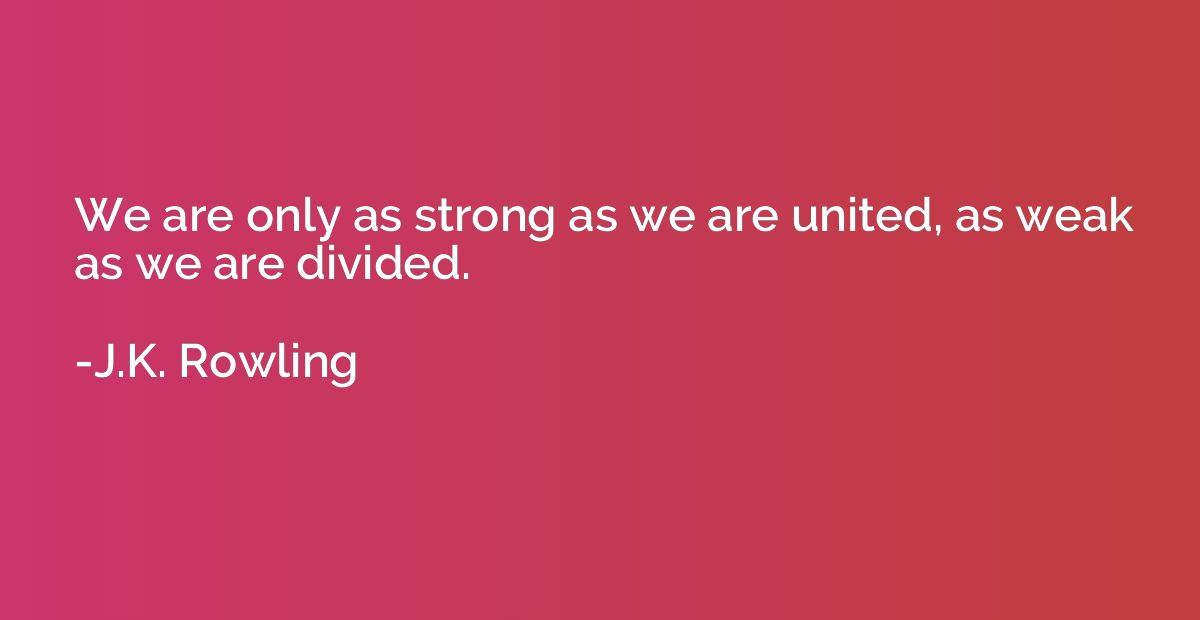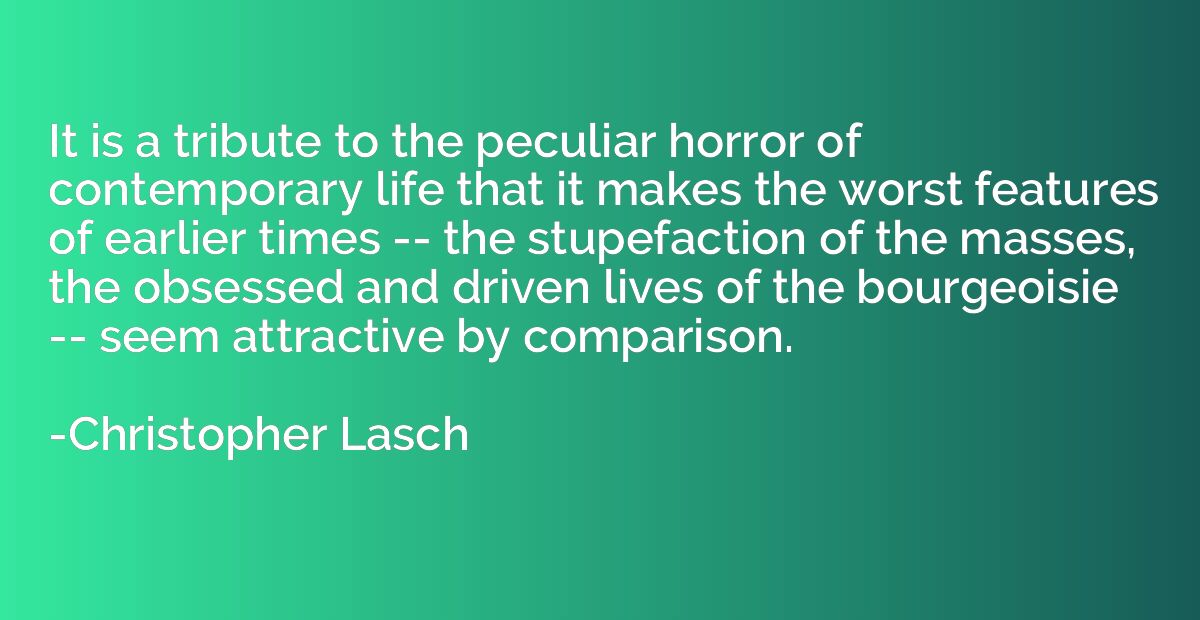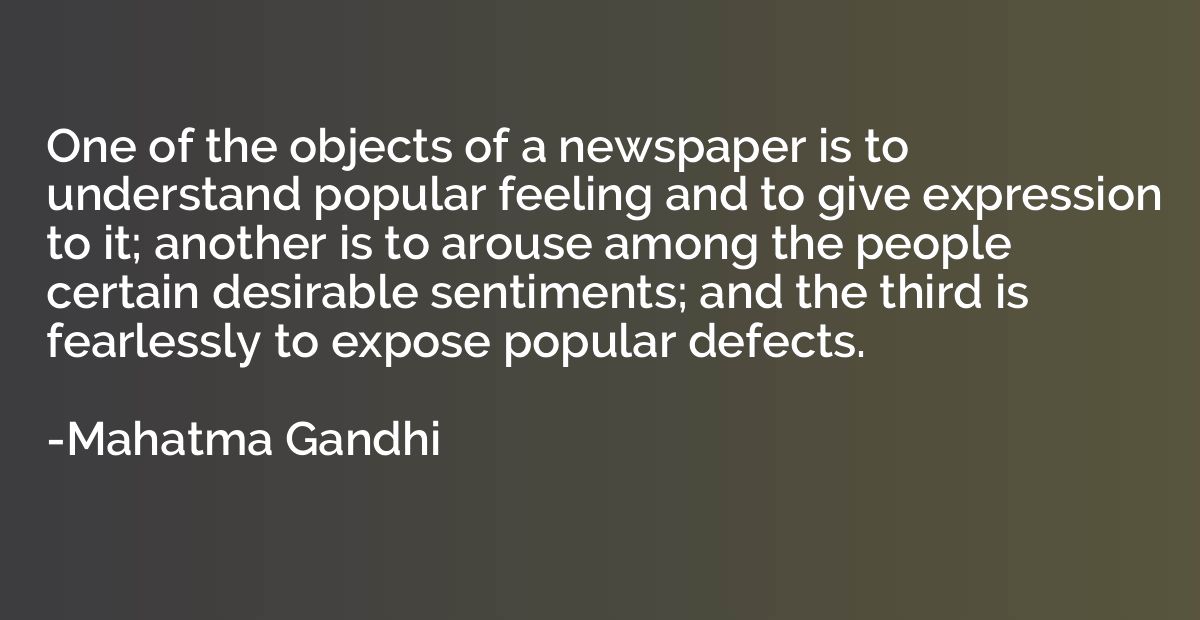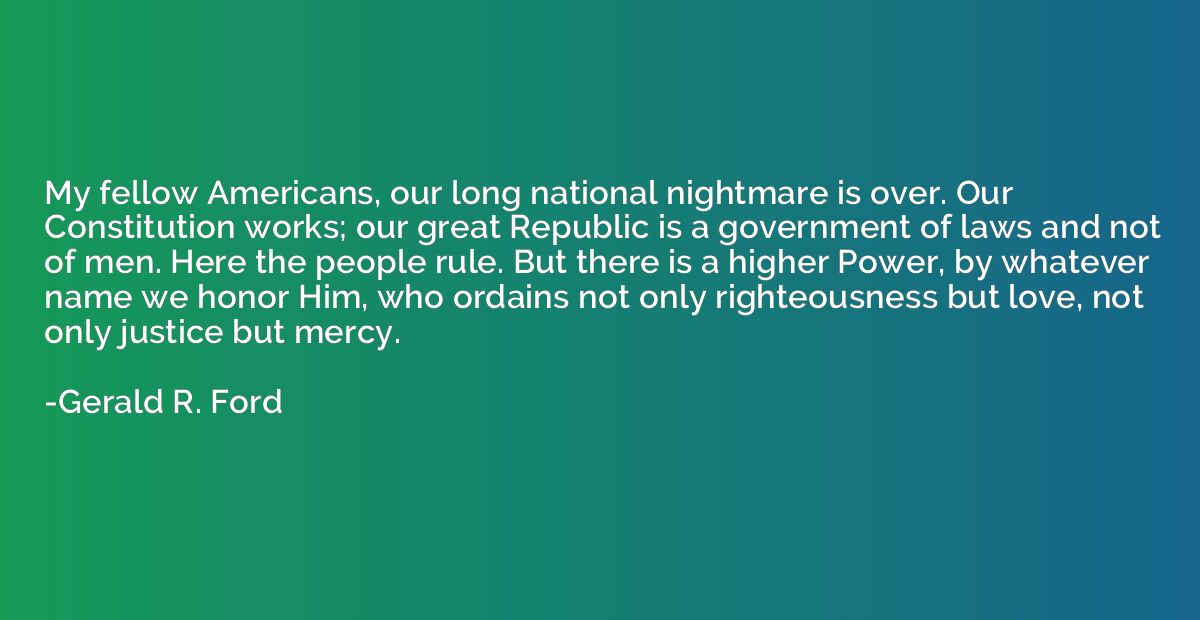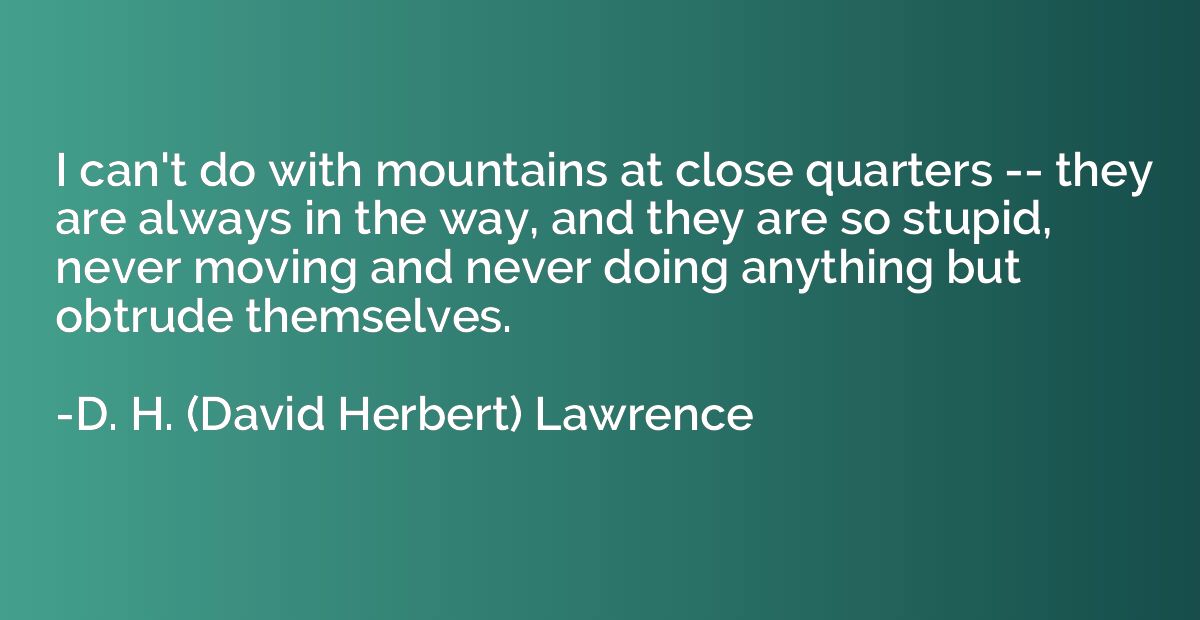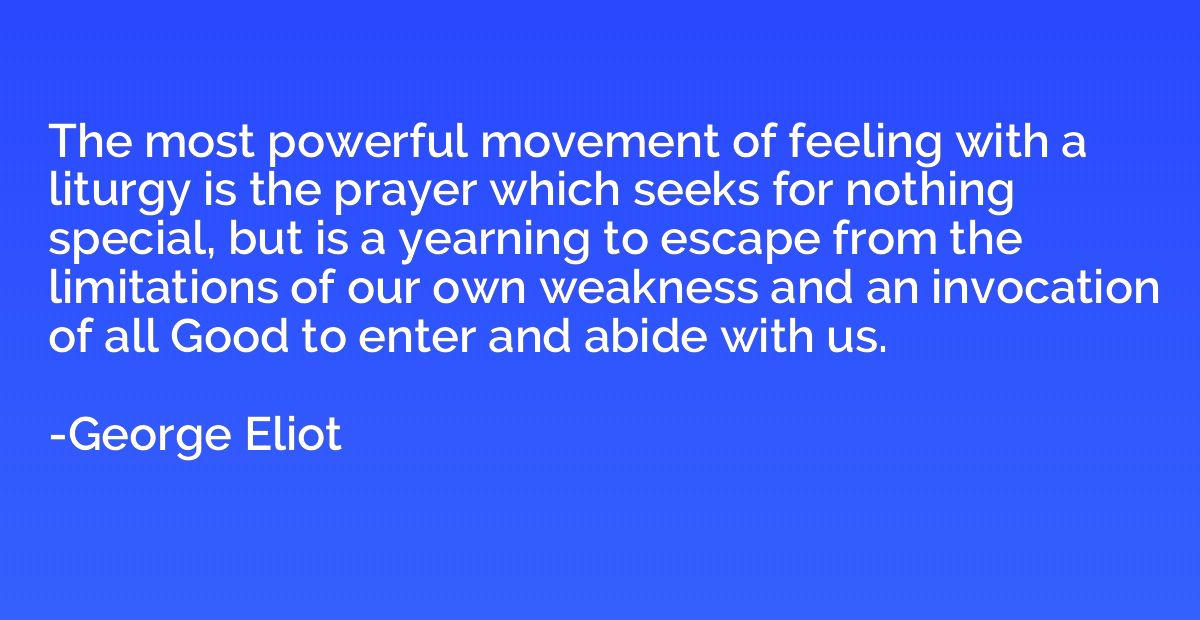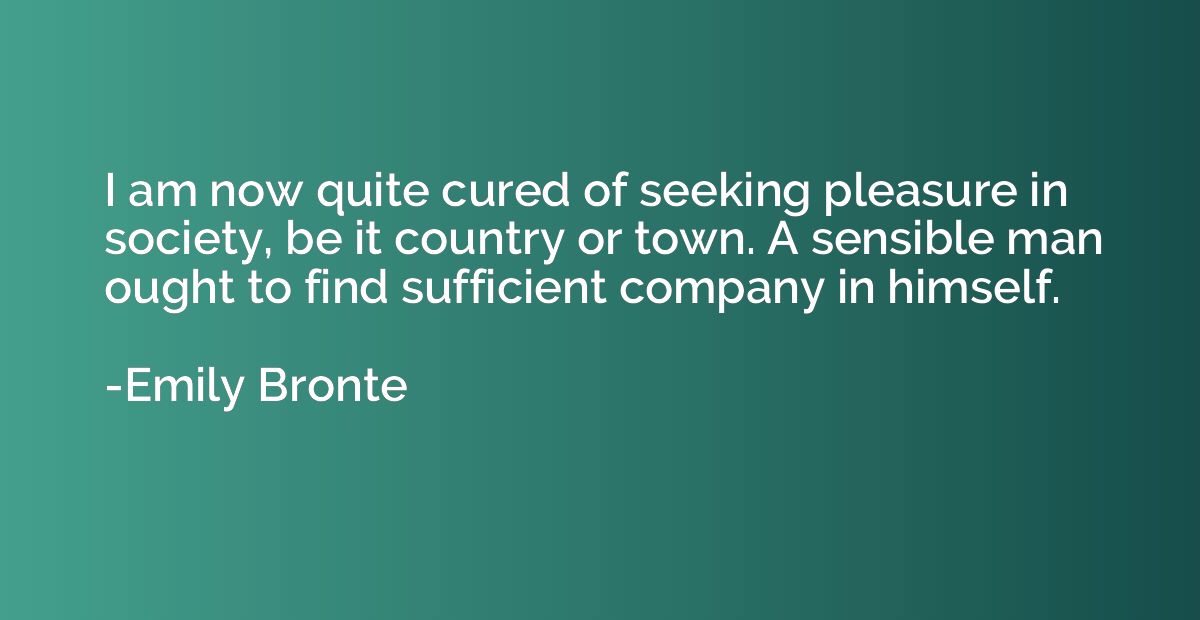Quote by Walter Lippmann
Successful democratic politicians are insecure and intimidated men. They advance politically only as they placate, appease, bribe, seduce, bamboozle, or otherwise manage to manipulate the demanding and threatening elements in their constituencies. The decisive consideration is not whether the proposition is good but whether it is popular -- not whether it will work well and prove itself but whether the active talking constituents like it immediately. Politicians rationalize this servitude by saying that in a democracy public men are the servants of the people.
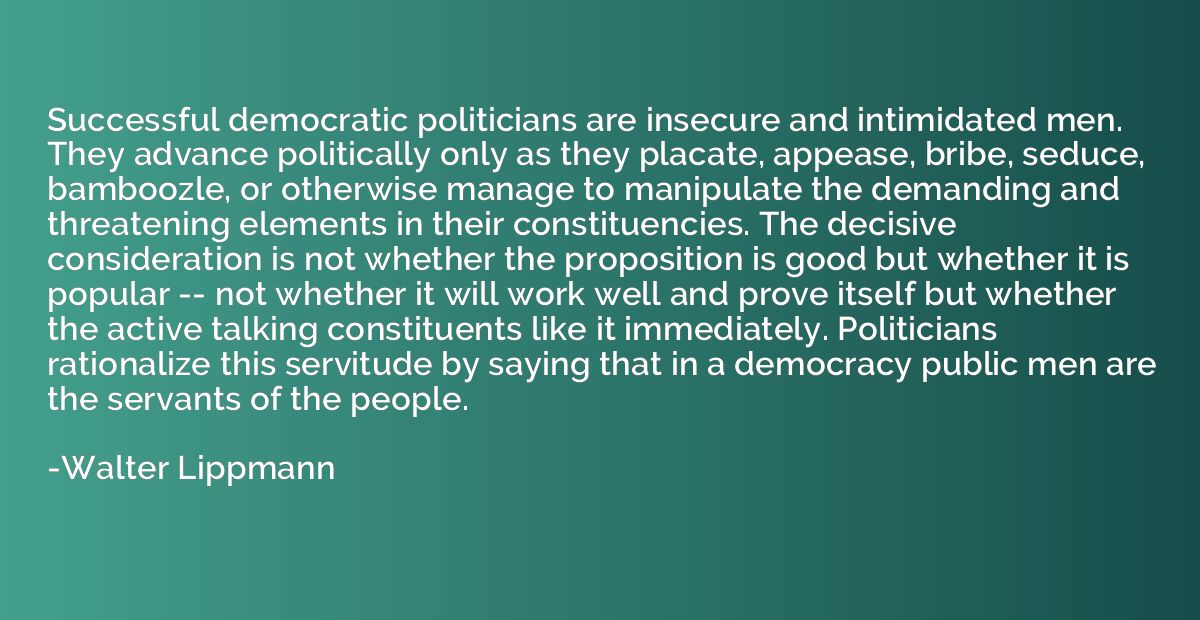
Summary
This quote suggests that successful democratic politicians often feel insecure and intimidated. In order to climb the political ladder, they resort to tactics like placating, bribing, and seducing their constituents to appease the demanding and threatening elements within their support base. The quote also highlights how popularity and immediate approval, rather than the efficacy of their proposals, become the primary considerations for politicians. The belief that politicians are servants of the people is used as a rationalization for this servitude to public opinion in a democracy.




